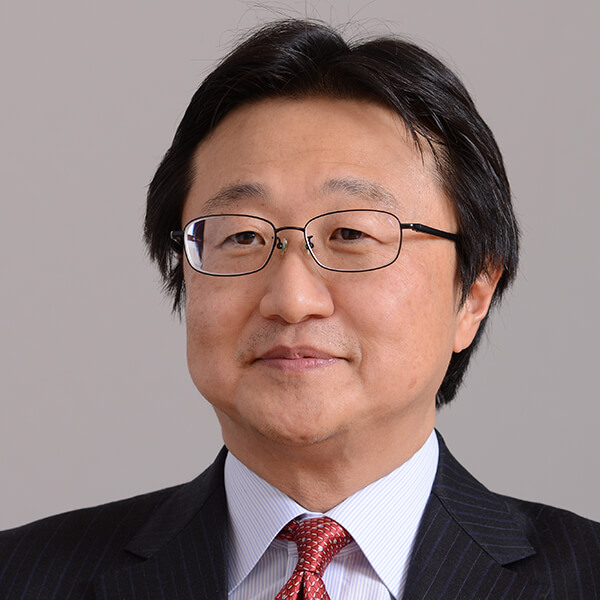Long-Term Investing
Japan
Japan faces many headwinds as it battles COVID-19 alongside other challenges unique to itself. Bright spots can still be found, however, amid the economic storm.
In this Q&A, the co-principal investment officers of the Capital Group Japan Equity strategy put into perspective the road ahead for investing in Japanese equities.
Given the heavy impact the coronavirus has on Japan’s economy, what is your outlook for the Japanese equity market?
Seung Kwak: Japan experienced a very sharp downturn in recent months (April and May) due to lockdown restrictions that were introduced to contain the spread of COVID-19. But the COVID-19 situation is beginning to normalise in Japan with fewer new cases per day (below 100 confirmed cases per day since the middle of May ). Given that the pandemic appears to have peaked in Japan, economic activity is expected to gradually recover and many investors have pre-empted this recovery.
In addition, strong liquidity injections (funding operations by the Bank of Japan) and fiscal stimulus measures (¥234 trillion of stimulus spending this year ) have also helped to ease economic concerns and drive investor sentiment. The combination of these different push factors has prompted the market to recover ahead of earnings, which are still being revised downwards. However, I do expect earnings to bottom-out in the coming months alongside the resumption in economic activity.
The TOPIX has gone up by more than 11% in April and May . But even if you look at the situation over a longer timeframe, Japanese equities have proven to be one of the more resilient markets globally amid the COVID-19 downturn. Year-to-date (end of May), the TOPIX was down less than 8%3. In terms of valuations, Japanese equities are currently trading close to their historical low with an average price-to-book ratio of 1.2× , which can present very good risk-return opportunities for investors.
Akira Horiguchi: I think that conditions leading to deflation could persist in the current environment , as domestic demand is particularly challenged at the moment in the face of the coronavirus crisis. But domestic demand has less of an impact on the Japanese equity market than global demand.
Some things remain unchanged despite the market conditions. These include the technology war between the US and China on 5G, and the competition within the semiconductor space to meet the demands of an ever-connected world. These are the areas where Japanese companies could play an important role as what I call “key technology-enablers”. These companies make up a sizable portion of the Japanese equity market and they are crucial for the global economy in that their products and services contribute to the digital transformation we see in the world. Looking from this perspective, one should be able to see the bright side of the Japanese equity market.
1. Data as at 2 June 2020. Source: World Health Organization.
2. Data as at 11 June 2020. Source: Bloomberg
Risk factors you should consider before investing:
- This material is not intended to provide investment advice or be considered a personal recommendation.
- The value of investments and income from them can go down as well as up and you may lose some or all of your initial investment.
- Past results are not a guide to future results.
- If the currency in which you invest strengthens against the currency in which the underlying investments of the fund are made, the value of your investment will decrease.
- Depending on the strategy, risks may be associated with investing in fixed income, emerging markets and/or highyield securities; emerging markets are volatile and may suffer from liquidity problems.
Risk factors you should consider before investing:
- This material is not intended to provide investment advice or be considered a personal recommendation.
- The value of investments and income from them can go down as well as up and you may lose some or all of your initial investment.
- Past results are not a guide to future results.
- If the currency in which you invest strengthens against the currency in which the underlying investments of the fund are made, the value of your investment will decrease.
- Depending on the strategy, risks may be associated with investing in fixed income, derivatives, emerging markets and/or high-yield securities; emerging markets are volatile and may suffer from liquidity problems.
Our latest insights
-
-
-
-
European Equity
-
Economic Indicators
RELATED INSIGHTS
Past results are not a guarantee of future results. The value of investments and income from them can go down as well as up and you may lose some or all of your initial investment. This information is not intended to provide investment, tax or other advice, or to be a solicitation to buy or sell any securities.
Statements attributed to an individual represent the opinions of that individual as of the date published and do not necessarily reflect the opinions of Capital Group or its affiliates. All information is as at the date indicated unless otherwise stated. Some information may have been obtained from third parties, and as such the reliability of that information is not guaranteed.
 Seung Kwak
Seung Kwak
 Akira Horiguchi
Akira Horiguchi